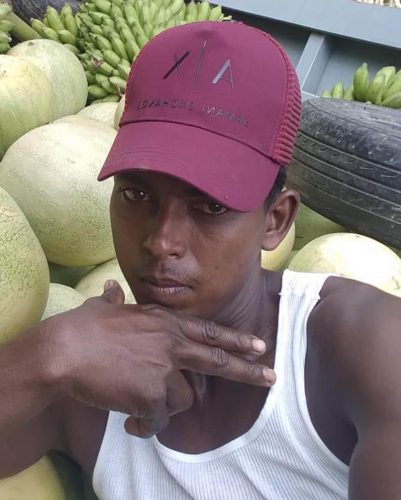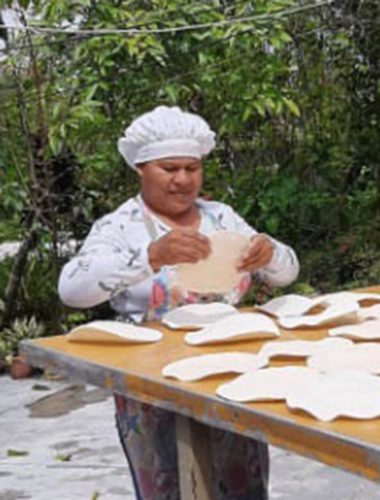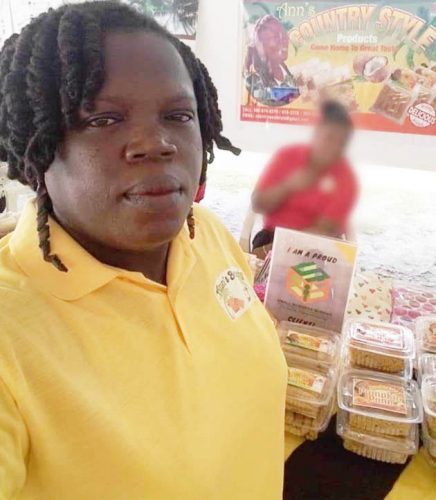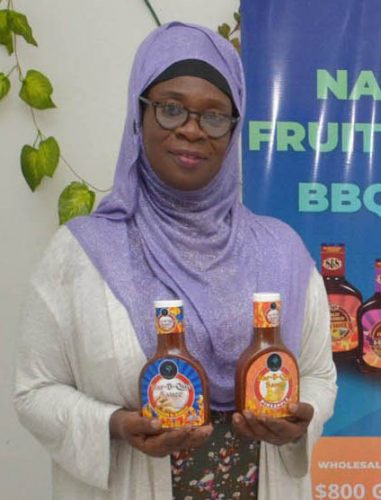The Guyana business community has had little choice but to endure the debilitating strictures resulting from the impact of the coronavirus on various entrepreneurial pursuits. While the full impact in terms of loss of production, unemployment and direct and indirect impact on lives and livelihoods is yet to be determined, it is already clear that it could take years, for countries, individual businesses, and families to recover.
It is, all too frequently, the smallest and the weakest that are most affected in these circumstances and these past few weeks the Stabroek Business has been engaging a number of small and micro businesses in the various sectors with a view to determining, among other things, just how the pandemic has impacted on their respective businesses and just what it will take to get them back on the road to recovery:
Our focus on small and medium-sized enterprises (SME) in the agriculture, food service, agro processing, and retail sectors, has been influenced by the fact that these kinds of businesses have been the most acutely affected by the pandemic and its attendant crisis. Our brief accounts of their individual circumstances focus particularly on their experiences and their views on the responses which they believe are required to support their recovery.
Miguel Gurchuran – Gurchuran Investments Inc
Prior to the onset of Covid-19 (early in 2020), Gurchuran Investments Inc had negotiated a bank loan to invest in its various enterprises that include the Java Coffee Bar, with locations at Duncan Street, Campbellville, Giftland Mall, and Site Builders, among others. COVID-19-related closures and loss of income left the enterprise with a hefty outstanding bank loan. Proprietor Miguel Gurchuran told Stabroek Business that the bank having turned that overdraft into a loan, means he is now heavily indebted while his anticipated return on his investment is yet to begin to materialise. He believes that government must now move to offer affected businesses low-interest and interest-free loans to support the survival and longer-term recovery of affected businesses. Additionally, Gurcharran says that consideration should be given to reducing VAT and taxes on imports that have a direct bearing on the recovery process. He says he remains seriously impacted, still in business… and hoping.

Chris has been a farmer all his life. He cultivates corn, pumpkins, plantains, watermelons and eddoes on his 10-acre Western Hog Island farm. Twice a week he travels to Parika to sell his produce. Flooding has compounded the challenges arising from COVID-19. It has never been as bad as this for him. The recent flood-related circumstance has meant that he has been forced to dispose of his farm produce “in heaps,” at a significant loss. Chris says that Hog Island is a large farming community more than deserving of more official attention. He says that works undertaken to clear canals and trenches on the island are not properly done. More official oversight is needed, he opines. With the crisis still very much in evidence he admitted he could use some official assistance to defray the cost of acquiring seeds for replanting. Government, he posited, needs to tackle the irrigation issues on the island. At the moment he is challenged to repay an outstanding loan to IPED.
Dramatic loss of market has closed Sandra’s business for more than a year. She resumed limited operations at the end of June this year. The non-availability of bottles for packaging her Bar-B-Q sauce has been her biggest challenge. The Covid-19 shipping crisis has placed limits on imports and suitable local options have been hard to find. Sandra has had to pursue options to her imported bottles. Her biggest concern at this time is the risk associated with incurring recovery-related debts that she might be unable to afford to repay.
Sandra suggests that one way in which government can support the sector at this time is by subsidising product-packaging and labelling costs through the importation of machinery to which agro-processors can have access. She also wants to see the greater empowerment of the Small Business Bureau as well as a more assertive posture on the part of government insofar as pushing commercial banks into a more accommodating posture where lending to micro and small businesses is concerned.

The proprietor of Roy’s Quality Spices says that since many of the inputs associated with the company’s manufacturing process are imported, production costs have risen appreciably. The company’s current indebtedness to the banking system apart, Roy’s Quality Spices is currently engaged in upgrading work at its factory on the Essequibo Coast. At the same time Roy’s Quality Spices is seeking a further loan for the purchase of equipment with which to process turmeric and ginger. An investment of this kind, the proprietor says, would position the company to significantly increase the volumes of ginger and turmeric bought from local farmers.

Marcia Gonsalves trades under the name Marcia’s Products. Marcia produces and markets cassava bread, casareep and farine. She also cultivates pineapples, sweet potatoes, and bitter cassava on a one-acre farm on the Soesdyke/Linden highway. The acoushi ants are destroying the cassava, but they do not attack the pineapples.
Covid-19, Marcia says, has impacted both production and markets. The Guyana Marketing Corporation (GMC), Marcia’s biggest buyer, has cut its purchases significantly. It has been the same with supermarkets and other outlets.
Marcia has received a $500,000 grant from the Small Business Bureau to rehabilitate her factory at Soesdyke. While she had accumulated some savings with which to acquire an industrial mill, those savings have had to be re-directed as the pandemic-related crisis has deepened. Since then, the prolonged nature of the pandemic has worsened the situation. Marcia wants government to immediately and significantly increase grants to small businesses at this time based on an assessment of their particular needs. Government, she says, should also move immediately to help small businesses meet the costs of local and overseas promotion of their products.

Simone Peters is a baker and caterer. She remains in business solely because she has leant to be ingenious in her ways, to ‘cut and contrive’ as we say in Guyana. Apart from catering for events, Simone is well-known for the coconut biscuits which she produces. Unsurprisingly, schoolchildren are a key market for Simone.
In March last year when schools and some businesses houses were hurriedly closed in response to the outbreak of Covid-19 in Guyana, the enterprise known as Ann’s Country Style Coconut Biscuits came to a near halt. A single parent, foster mother to three other children, and responsible for her mother’s welfare Ann has had no choice in the posture of determination that she has struck in her grim determination to go forward.
Between March and August last year she resorted to her savings to keep her going. That option is now exhausted. Afterwards, she turned to the manufacturing and marketing of pickles made from seasonal fruits and vegetables.
For the while, however, the markets for her coconut biscuit offerings have dried up. Supermarket orders for her agro-produce have been reduced by more the half. Refusing to call it quits, Simone rented a stall at the Vreed-en-Hoop marketplace and began to sell fruits and vegetable pickles there. Her agro-processing pursuits have won her some modest but encouraging markets.
Simone’s primary concern in the prevailing business climate insofar as the survival of micro and small businesses is concerned is what she says is the absence of a suitable structure and system to make loans and grants accessible to businesses such as hers. While she applauds the support she has received from Republic Bank by affording her a loan to acquire an oven in which to do her baking and continuing to provide support in the prevailing challenging times, she says that at an official level much more has to be done by government in terms of providing small businesses with the survival tools which they need at this time.







